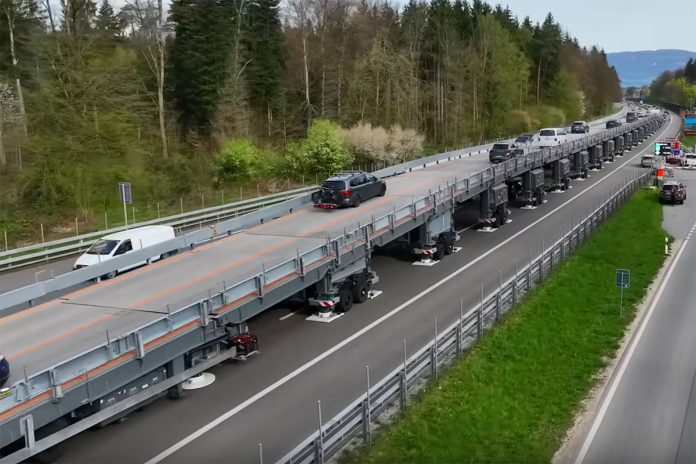The Federal Roads Office of Switzerland has developed a pioneering solution to manage road construction without causing significant traffic disruptions: the ASTRA Bridge. This modular, mobile flyover bridge allows vehicles to drive over sections of highway under repair, alleviating congestion and enhancing safety for both motorists and construction workers.
Development and testing
The concept of the ASTRA Bridge was first put to the test in 2022 on the A1 motorway in Switzerland. Following the successful trial, a refined version was introduced this year. This improved model has been operational since April and will remain in use until August. The continuous testing ensures the bridge’s efficiency and effectiveness in real-world conditions.
How the ASTRA Bridge works
The installation of the ASTRA Bridge is a meticulous process designed to minimize disruption. Prior to commencing roadwork, the affected highway section is closed for a weekend. During nighttime hours, the bridge’s modular sections are transported to the site using trucks. These sections are then assembled to form a flyover that spans the work area, complete with ramps at both ends for smooth vehicle transitions.
Once assembled, the bridge is opened to traffic. Motorists can drive over the bridge at a regulated speed of 60 km/h (37 mph), eliminating the need for lane merging or stop-and-go traffic that typically accompanies roadwork zones. This setup significantly reduces the traffic backlog and frustration for drivers.
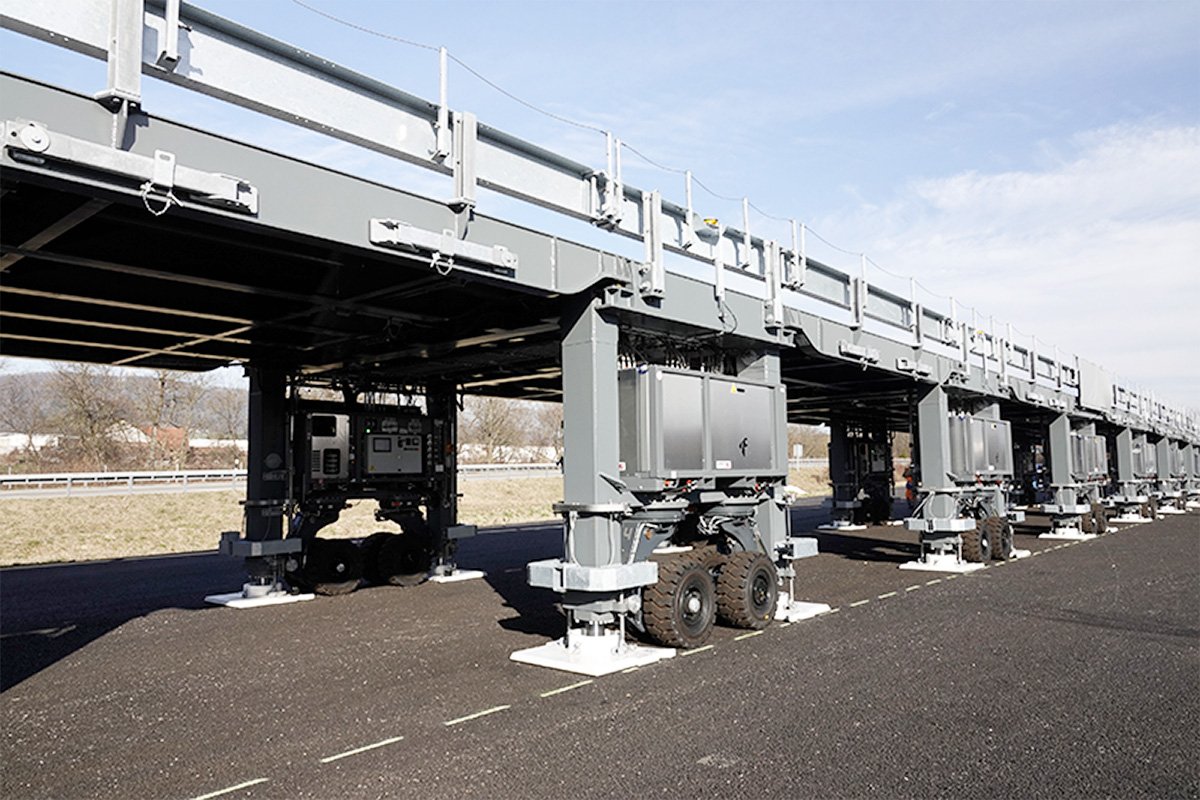
Safety and efficiency for workers
One of the primary benefits of the ASTRA Bridge is the increased safety for construction workers. Working beneath the flyover, they are shielded from passing vehicles and adverse weather conditions. This protection allows for a safer working environment and enables roadwork to be conducted during the day, reducing the need for potentially hazardous night shifts.
The bridge’s design includes a ground-level logistics lane adjacent to the flyover, providing access for tall construction vehicles that cannot fit under the structure. This lane can utilize the existing passing lane or hard shoulder, ensuring that construction vehicles can operate efficiently without interfering with the primary traffic flow.
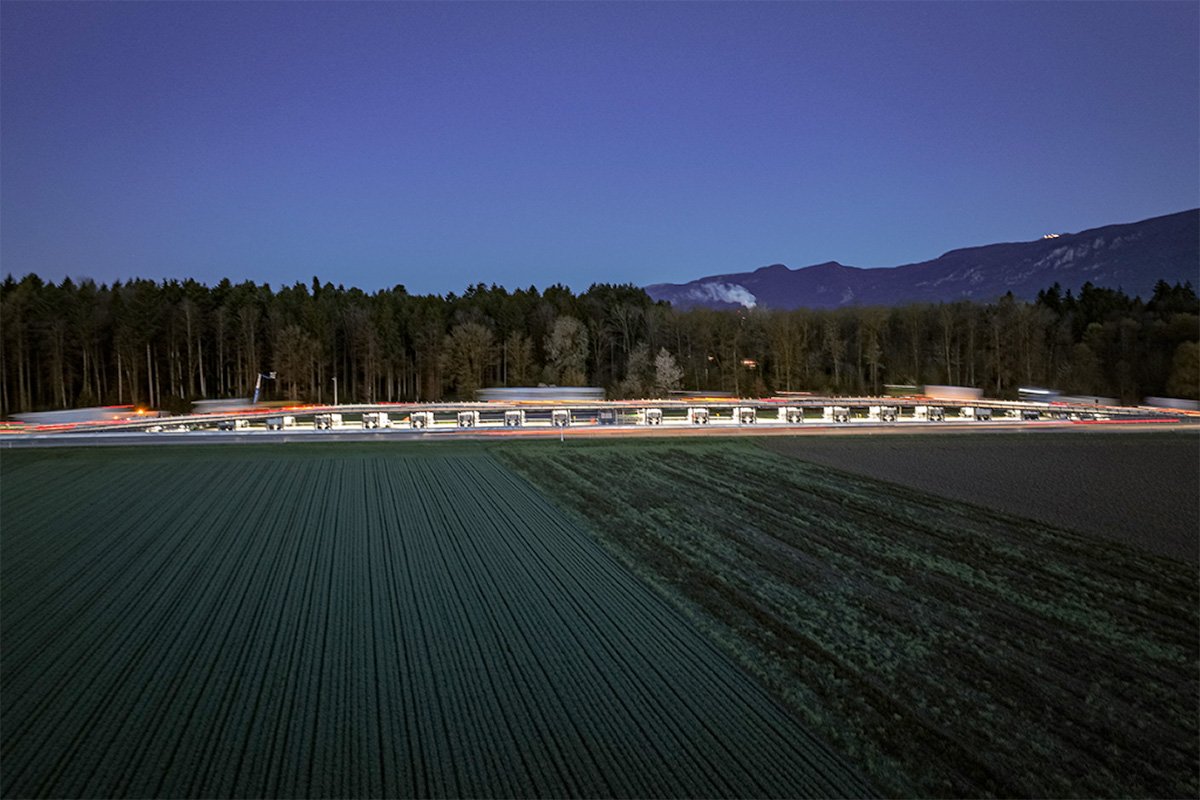
Mobility and versatility
The ASTRA Bridge is not a stationary structure. Once work on a particular section of the highway is complete, the bridge is hydraulically lifted by 10 cm (3.9 inches) and moved to the next section using motorized wheels. This mobility, controlled remotely, allows the bridge to be repositioned repeatedly until the entire road project is finished. This feature significantly enhances the versatility and utility of the bridge in various construction scenarios.
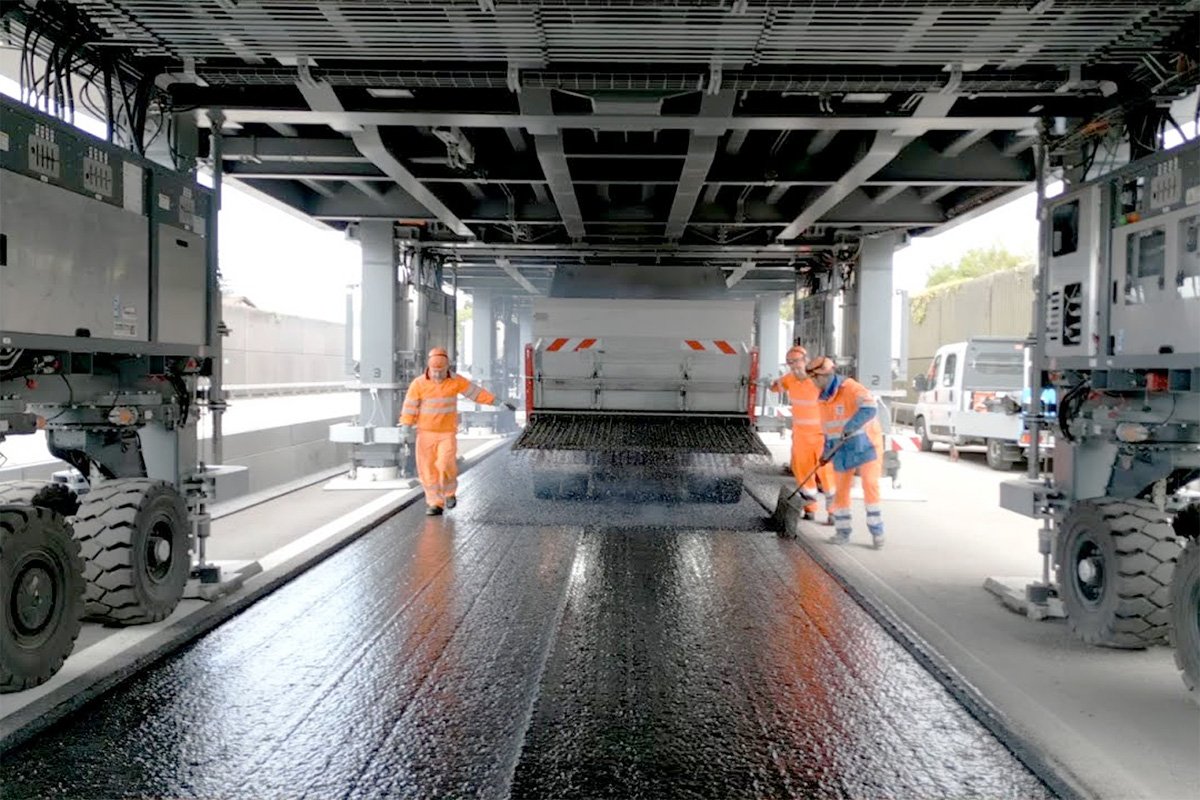
Technical specifications
The current version of the ASTRA Bridge boasts impressive dimensions:
Length: 257 meters (843.2 feet)
Width: 7.57 meters (24.8 feet)
Height: 4.65 meters (15.3 feet)
Workspace beneath: 100 meters long, 5.1 meters wide, and 3.1 meters high (328 by 16.7 by 10.2 feet)
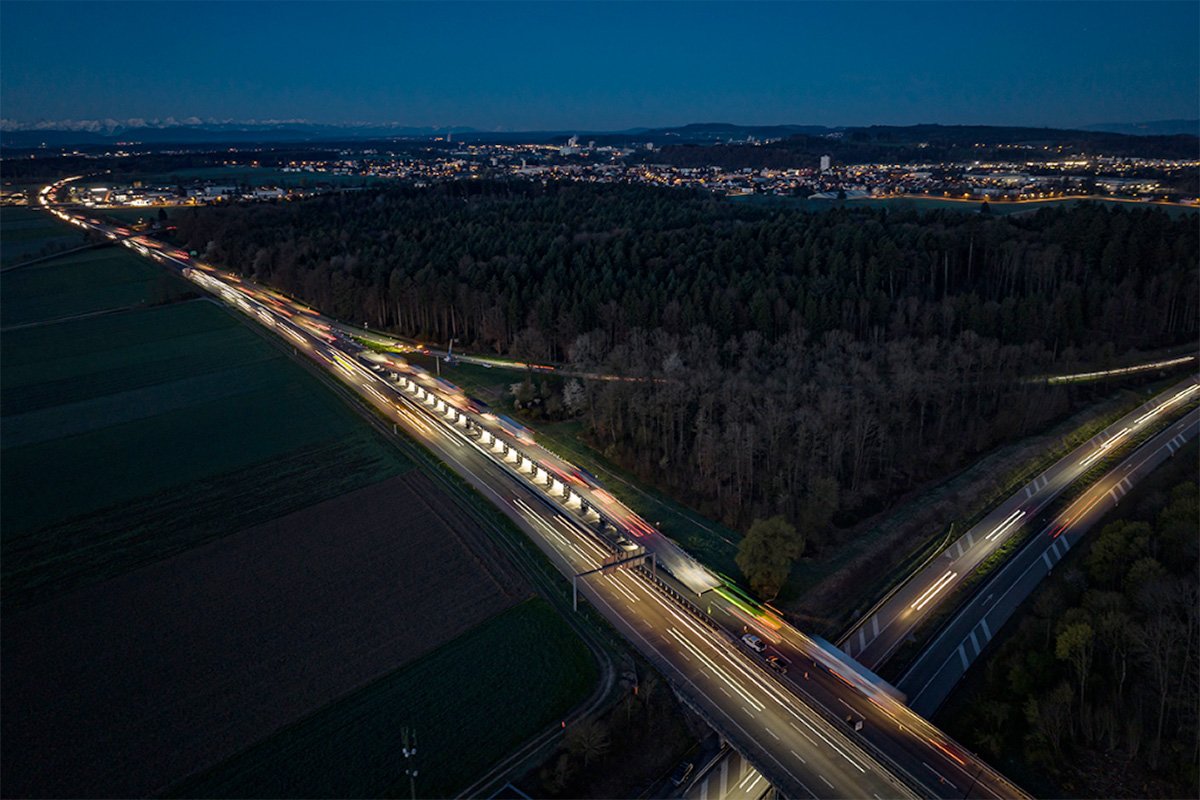
Logistical requirements
Setting up and dismantling the ASTRA Bridge involves a well-coordinated logistical operation. It requires 16 trucks with low-bed trailers, collectively making 45 trips to transport all structural elements to and from the worksite. The assembly process also necessitates three cranes and two teams of 14 workers each, underscoring the complexity and scale of the project.
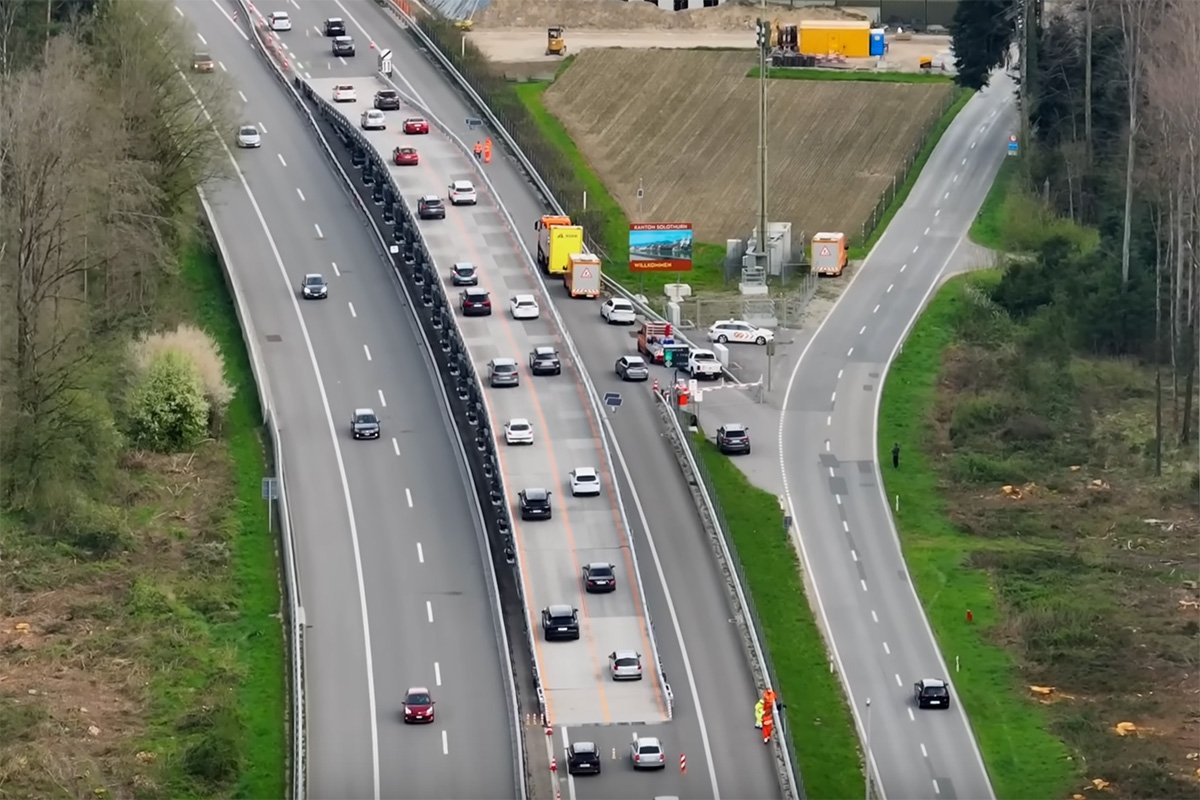
Conclusion
The ASTRA Bridge represents a significant advancement in road construction management, offering a practical solution to mitigate traffic disruptions and enhance worker safety. Its ability to facilitate continuous traffic flow while protecting construction workers from hazards is a notable improvement over traditional roadwork setups. The ongoing trials and refinements of the ASTRA Bridge underscore its potential to become a standard solution in highway maintenance and construction, promising smoother journeys for motorists and safer, more efficient working conditions for road crews.
Source: Federal Roads Office

